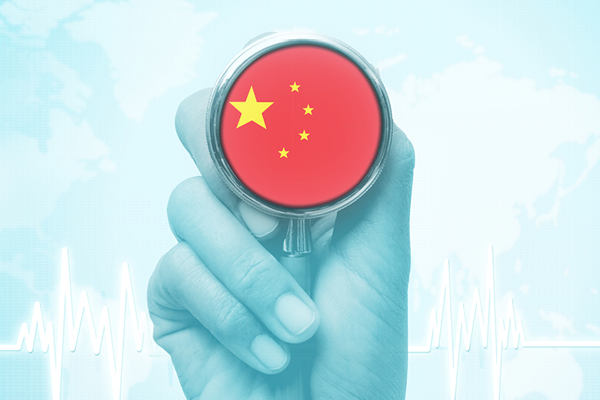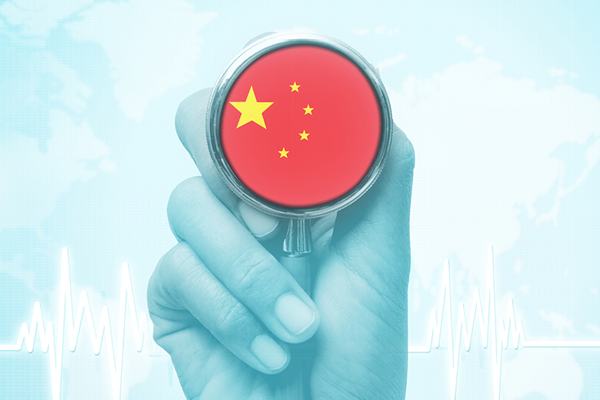
中国拥有全球第二大医疗健康市场,预计到2020年,医疗健康方面的支出总额将达到1.1万亿美元。作为医疗健康改革工作的一部分,中国政府近年来也出台或修订了一些相关的法律法规。该领域的专业律师表示,现在律师们需要开始学习新领域的知识,例如数据保护,因为它们正在越来越多地融入传统的医疗健康业务中。
民生的基础和政府关注的焦点
环球律师事务所合伙人傅志耕说:“医疗健康领域是基础民生领域,也是国内备受关注的焦点。”他指出,近年来随着社会发展、宏观政策的变化,医疗健康领域的热点话题也日趋丰富。
他说:“在政策层面上,随着两票制、带量采购和新修订的《药品管理法》等政策的实施,上游医药研发及CRO(医药研发合同外包服务机构)企业、中游药品生产企业积极从事药物研发,终端流通销售渠道也不断得到改善。”
今年8月份《药品管理法》的修订颁布,是自1984年该法颁布以来进行的第二次重大修订。
“新法将药品领域改革成果和行之有效的做法提升到立法层面,为公众健康提供了更有力的法治保障。”傅律师说。
他特别指出,新的《药品管理法》主要包括导向创新,优化临床试验管理和审批制度,以及通过引入上市许可持有人制度与国际标准接轨。此外,新颁布的《药品管理法》还通过实施全程管控和个人问责制来加强法律监管。
“国家先后出台了多项具有革新性、创新性的政策和指导原则,逐渐细化和强化了医疗行业法律监管,体现了政府深化医疗制度改革、保障用药安全、鼓励新药创新的大原则。”竞天公诚律师事务所合伙人周晗烁说。
方达律师事务所合伙人施巍表示,在中国现在的医疗健康行业中,药品进口审批速度加快了,国内企业开展新型药品研发的步伐也越来越快,合规要求不断细化,数据隐私保护取得了进展,质量评估和医疗保险制度的改革也得到了深化。
施律师表示,新《药品管理法》的亮点包括进一步实施上市许可持有人制度,以及促进新药研发的措施,如简化临床试验申请审查程序。
“另一项值得注意的法规是《反不正当竞争法》,该法于2018年1月1日生效。”施律师说。
他解释说,该项法律规定,除非雇主能够证明其雇员的商业行为与为雇主争取商业机会或竞争优势无关,否则雇员的商业贿赂行为应归咎于其雇主。在评估雇主是否履行了其举证责任时,执法机构将评估雇主是否认真对待了商业贿赂,例如其是否制订并落实了有效的合规计划和强有力的控制措施。
“鉴于当前的商业发展趋势,加大投入使商业更加透明、可信,并推动其不断进步,这样的投入能带来增值效应;此外,经营者还应该跟上相关法律法规的更新和执法发展的步伐。” 施律师说。
中国药品监督机构——即国家药品监督管理局,也正在制定许多新法规,以进一步加快中国的医疗改革,特别是关于鼓励类仿制药目录、医疗用品标准化、药品集中采购、互联网医疗健康付款等方面的法律法规。
“我们预计,将会有一系列配套措施出台,对现行法规进行必要的修改或修订,例如涉及药品注册、上市许可证转让、网售药品等,都需要细 化规则来进一步落实药品管理法的内容。”周律师说。
“根据我们的经验,在药品早期研发方面将会有更多的投资交易,港交所的IPO热潮也将继续。我们可以很清楚地看到,跨国公司对中国市场很感兴趣,而中国本土企业正在快速地发展。”施律师说。
施律师表示,随着市场竞争的加剧和中国监管改革的深入,如何在创新的同时遵守日益严格的监管要求已经成为制药企业关注的焦点。
“此外,技术的进步将继续推动更多传统制药公司转型。”他补充道。
医疗健康行业的技术创新
随着数字化在我们生活各个方面的普及,医疗健康行业也开始接受技术创新。人工智能、精准医疗、互联网医疗等各种新技术正在影响着医疗健康行业的未来。
“互联网+模式已经渗透到包括医疗健康在内的各个行业,医疗健康也不例外,必须从传统模式转向高度网络化、移动化。”周律师说。
“随着人们生活水平的提高以及社会老龄化发展,人们不再只是被动就医,而会更加注重健康管理、慢性病管理。同时,医疗信息化、科技医疗将会是未来发展的大方向,其核心仍然是鼓励创新、鼓励研发,以患者为中心,以市场为导向。”傅律师说。
傅律师指出,随着医疗健康领域的这些变化,客户对法律服务的需求也越来越多样化。
例如,随着互联网医疗和医疗人工智能行业的发展,客户需要律师能够就医疗大数据的合规性和医疗领域的知识产权保护等方面提供全方位的法律服务。
作为专注于医疗健康业务的律师,不仅需要及时了解和跟踪法律及政策的变化,为客户提供最及时、最准确的合规建议和法律咨询,同时还要“及时了解和跟踪最新的行业动态,从而及时为客户的项目发现问题、解决问题”,傅律师表示。
快速变化的领域
关于医疗健康行业有一点是可以肯定的,那就是该行业在不断发展变化,所以行业法规的出台必然会滞后于新问题的出现。
因此,从事医疗健康业务的律师面临的主要挑战包括:如何及时为客户提示和防范风险,及时了解行业发展的变化,以及相关监管政策的发展动态,以便为这些在新兴领域探索业务机会的客户提供全方位的合规建议和法律咨询服务,傅律师指出。
律所已经意识到,他们需要对其现有的服务进行细化,提供多样化的服务模式,从而为客户提供“一站式” 的法律服务。
“目前,我们的法律服务经验不仅覆盖了药品研发、生产和销售,医疗器械生产和销售,以及医疗服务的全流程,还包括医疗健康领域的投资与融资、并购、上市融资、合规审查和建议、知识产权保护、争议解决等各类业务。”傅律师表示。
他还指出,由于外资准入政策的逐步放宽,越来越多的国际资本被吸引到中国的医疗健康领域。而随着国际市场竞争的加剧,越来越多的传统跨国企业在全球范围内进行业务重组和整合,其中也包括他们在中国的投资和业务。
方达的施律师表示,有越来越多的客户向他咨询合规方面的问题。例如,由于在《网络安全法》下很快将会出台许多相关的实施细则,同时全国信息安全标准化技术委员会(简称信息安全标委会,TC260)正在最终确定许多国家标准,“有些企业不断要求我们提供有关数据隐私立法的最新进展”。
而一些新兴的研发驱动型中国制药公司则要求律师们为他们就有关药物临床研究和上市销售方面的问题提供全方位的、基于解决方案的监管建议。
“有兴趣投资于创新型生命科学公司的风险投资则伴随着复杂的资格和监管问题。”施律师告诉ALB。“为了迎合市场发展,律师需要进一步细分和发掘医疗健康行业不同领域,确保自己深入了解业务本身,并及时掌握法律法规的发展动态。”
“医疗健康行业是一个受到高度监管的行业,充满各种法律挑战,包括监管和技术方面的挑战。面对这个行业的飞速发展,我们别无选择,只能奋起直追,扩充自己的专业知识。”施律师补充道。
周律师指出,中国监管机构已经完成了中医药和疫苗管理等法律的立法,并且修订了药品管理法等法规;部分试点方案也已经在全国范围内推广。
“未来我们一定会看到更多的法律法规、制度的创制或修改,在巩固已有改革成果的同时,也为将来产业、社会的深化发展搭出法律的框架,铺平道路。”周律师说。
现在医疗健康行业需要复合型的律师,他们除了能够解读最新监管政策的发展动态,还需要对个人信息和健康医疗数据保护、知识产权、合规管理、私募及私募市场等诸多与医疗健康板块交织的领域有足够的了解。
“从网络安全与数据保护、《一般数据保护条例》(General Data Protection Regulation,GDPR)到人类遗传资源管理、生物新技术与人类伦理等等,再到跨国反商业贿赂、合规调查,对于现阶段的医疗健康业务领域的律师来说,可谓是机会与挑战并存。”周律师说道。
Health Matters
China has the world’s second biggest healthcare market today, and the government has also introduced and revised a number of laws and regulations in recent years as part of efforts to reform the industry. Lawyers say that the time has come for their peers to obtain knowledge in new fields, such as data protection, that are becoming more and more integrated into traditional health care.
Health matters to pretty much everyone, and especially in a large country like China, it is no surprise that healthcare is a fast-growing industry, with projected total healthcare expenditure reaching $1.1 trillion by 2020.
“Health care is the foundation of people’s livelihood and has always been the focus of attention for China,” says David Fu, partner at Global Law Office, noting that with the development of society and the change in macro policies, there are many more market trends in health care in recent years.
“We have implemented policies such as the two-invoice system, quantitative procurement, and the newly revised drug administration law,” he says. “Under the guidance of such policies, upstream pharmaceutical and contract research organisation (CRO) enterprises and midstream pharmaceutical production companies have been active in drug R&D, and the distribution and sales channels have also been continuously improved.”
The newly revised Drug Administration Law, promulgated in August this year, is the second major revision of the drug administration law since its enactment in 1984.
“It elevates the achievements and effective practices of the drug reforms to the legislative level and provides a stronger legal guarantee for public health,” says Fu.
He notes that the highlights of the new drug administration law include encouraging innovation, optimising clinical trial management and approval processes, and aligning with international standards by introducing the Marketing Authorisation Holder (MAH) system. In addition, the newly promulgated drug administration law also strengthens legal supervision by implementing comprehensive control systems and individual accountability.
“The government has issued a number of innovative policies and guiding principles, gradually refining and strengthening the legal supervision of the healthcare industry, which reflects the government’s overarching principle of deepening the reform of the medical system, ensuring drug safety and encouraging new drug innovation,” says Zhou Hanshuo, partner at Jingtian & Gongcheng.
Josh Shin, partner at Fangda Partners, says that the health-care industry in China has seen the speeding up of drug import approval, rapid development of novel drug R&D conducted by domestic corporations, the continuous refinement of compliance requirements, progress on data privacy protections, better quality evaluation and the reform of medical insurance system.
According to Shin, the highlights of the new Drug Administration Law include further implementation the MAH system, and promotional meas-ures for more novel drug R&D such as simplified procedures for clinical trial application review.
“Though not recently amended, another set of regulations worth noting is the Anti-Unfair Competition Law that became effective on January 1, 2018,” says Shin.
He goes to explain that the new rule states that commercial bribery acts of employees are imputed to the employer unless the employer can prove that the employee’s actions were unrelated to soliciting business opportunities or competitive advantages for the employer. In evaluating whether the employer has met its burden of proof, enforcement agencies will evaluate whether the employer takes commercial bribery seriously, e.g., whether it has a robust compliance program with strong controls.
“Taking into consideration the current business trends, it is value added to invest in making the business more transparent, trustworthy and progressive, and also to constantly keep up with the relevant law and regulation updates and enforcement development,” says Shin.
ACCELERATED REFORM
The Chinese drug watchdog, the National Medical Products Administration, is also working on numerous new regulations to further accelerate the healthcare reform in the country, particularly related to issues such as encouraged generic drugs directory, the standardisation of medical supplies, centralized purchasing of medicines, online medical care payment and so on.
“We expect to see more supporting measures to be implemented and amendments of the existing regulations regarding issues such as drug registration, transfer of marketing license, and online sales of drugs. Detailed rules are needed to further implement the new drug administration law,” says Zhou.
“Based on our experience, more investment deals in early-stage R&D have taken place and the IPO boom in HKEX continues,” says Shin. “Cleary we can see MNC’s interest in China and the development of home grown companies.”
With fiercer competition among market players and more regulatory reforms in China, innovation and compliance with the increasingly stringent regulatory requirements, have become the focus of pharmaceutical companies, according to Shin.
“In addition, the pace of techno-logical advancement continues to drive the transformation of more traditional pharmaceutical companies”, he adds.
TECHNOLOGICAL INNOVATIONS
With the popularity of digitalisation in all aspects of our lives, the healthcare sector has also embraced the technological innovation. Technologies such as artificial intelligence, precision medicine, and online medical care are shaping the future of the health industry.
“The Internet+ model has penetrated into various industries including health care, so it is necessary to trans-form the traditional development model into one that is highly digitalised and mobilised,” says Zhou.
“With higher living standards and an ageing society, people are no longer just passively seeking medical treatment, they are willing to pay more attention to health management and chronic disease management,” says Fu. “Medical digitalisation and technological health care will be the major development directions for health care with innovation at its core. The future will be patient-centred and market-oriented.”
Fu notes that with these changes in the healthcare sector, clients’ demand in legal services is also diversifying.
For example, the development of online medical care and medical artificial intelligence, clients need lawyers to provide comprehensive legal services on the compliance of medical big data and the protection of IP rights in the medical field.
“As a lawyer focused on health care, not only is it necessary to under-stand and track the latest changes in laws and policies to provide the most timely and accurate advices to clients, it is also essential to keep up with the latest industry trends to uncover and solve problems for the clients,” says Fu.
RAPID CHANGE
One thing certain about the health industry is that it’s constantly evolving, so there is bound to be a time lag between the emergence of new issues and the introduction of laws in the sector.
Therefore, the main challenges for healthcare lawyers would include advising and guarding clients against risks, keeping abreast of the changes in the industry and regulatory develop-ments so that they can provide a full range of legal advices to clients that are exploring business opportunities in these emerging areas, says Fu.
Law firms have realised that they need to diversify the legal services provided to serve as a one-stop shop for their clients.
“At present, the services we offer not only cover pharmaceutical R&D, drug production and sales, medical device production and sales, and the whole process of medical care, but also include investment and financing, merger and acquisition, IPO, compliance review and advice, intellectual property protection, and dispute resolution,” says Fu.
He also notes that more and more international capitals are being attracted to China’s healthcare sector due to the gradual relaxation of the foreign investment access policy. And with the intensification of the competition in the global market, more and more traditional multinational enter-prises have reorganized and integrated their business globally, including their assets in China.
Fangda’s Shin says that he had received an increasing number of compliance inquiries from clients. For example, some companies require constantly update on the data privacy legislative development given that many implementation rules that are subordinated to China Cyber Security Law are soon to be released and many national standards are in the midst of finalization by TC260 (national standards committee).
In some other cases, emerging R&D-driven Chinese pharmaceutical firms demand comprehensive and solution-based regulatory advices on the clinical studies and commercialisation of drugs.
“Meanwhile, venture capitals that are interested in making investment in innovative life science companies come along with complicated qualification and regulatory questions,” Shin told ALB China.” To cater to the market development, lawyers in the industry of healthcare are further subdivided and dig into different fields to ensure a deep understanding of the business itself and a timely grasp of the develop-ment of laws and regulations.”
“Healthcare is a highly regulated industry and is filled with all kinds of legal challenges, both regulatory and technological challenges,” Shin adds. “The rapid progress of the industry gives you no choice but to catch up and develop your own expertise.”
Zhou notes that, Chinese regulators have completed the promulgation of the law on traditional Chinese medicine and the administration of vaccines, as well as the revision of the law on drug administration. At the same time, some of the pilot schemes have also been rolled out across the country.
“In the future, we will definitely see more laws and systems being set up or revised. While it consolidates the existing reform achievements, it will also build a legal framework and pave the way for further development of the industry and society,” says Zhou.
Versatile lawyers are needed in the healthcare industry. In addition to the ability to interpret the latest regulatory developments, they also need to have adequate knowledge in personal information and medical data protection, intellectual property rights, compliance management, private equity and public offering market, and many other fields that are interwoven with health care.
“From network security and data protection, GDPR, human genetic resources management, novel biotech and human ethics, to transnational anti-commercial bribery, compliance investigation, there are plenty of opportunities as well as challenges to lawyers in the healthcare business,” says Zhou.
To contact the editorial team, please email ALBEditor@thomsonreuters.com.

